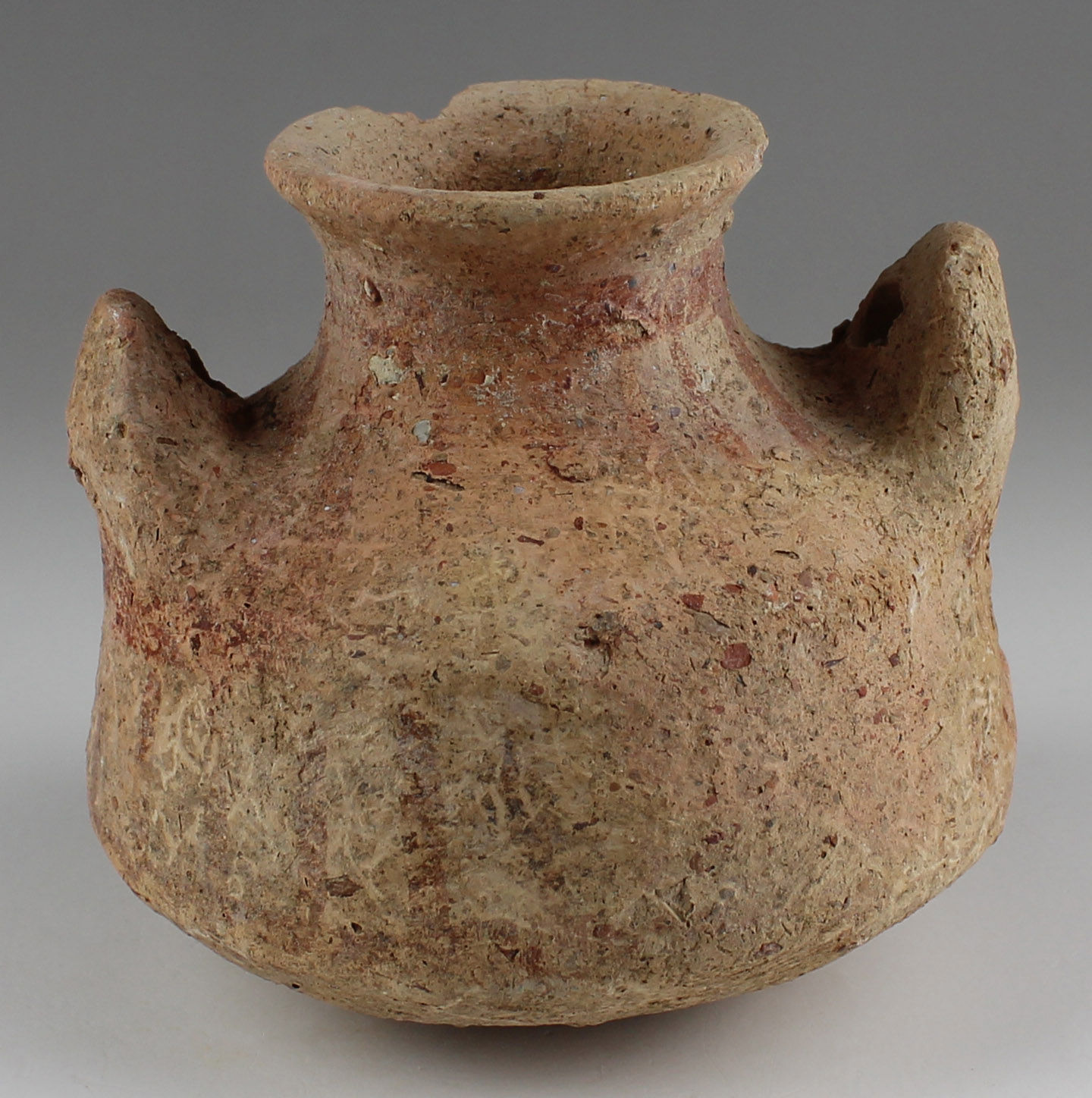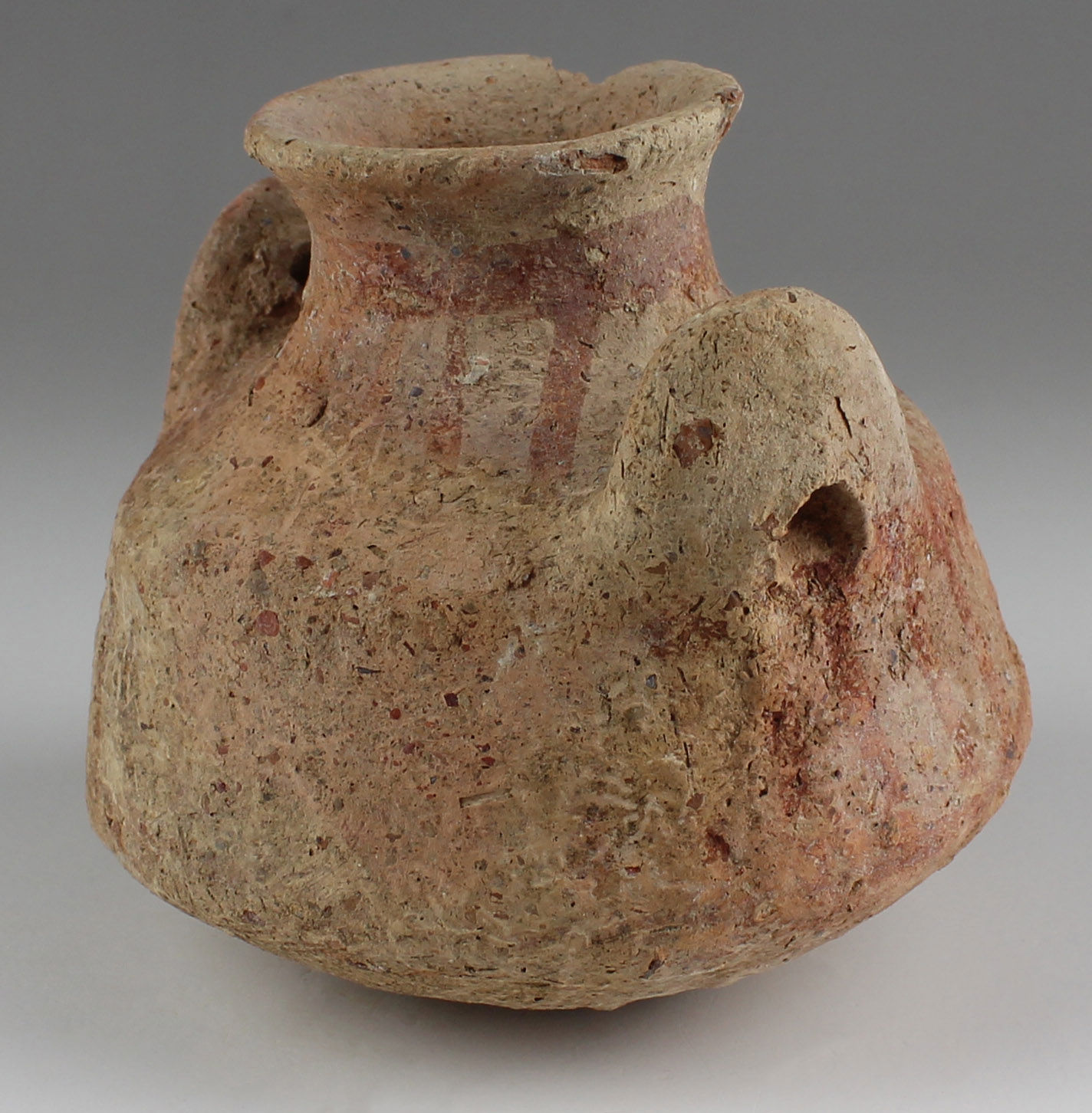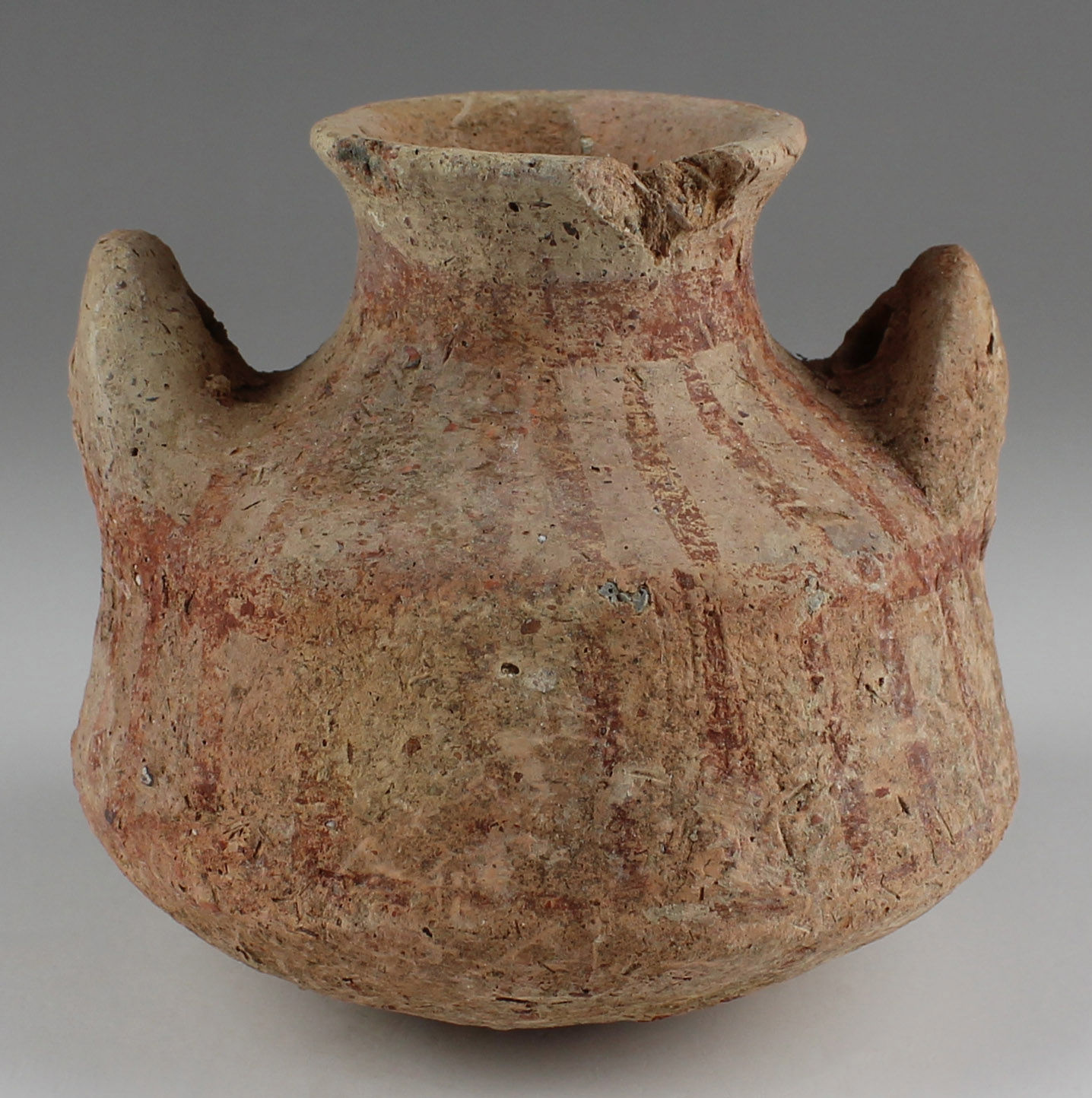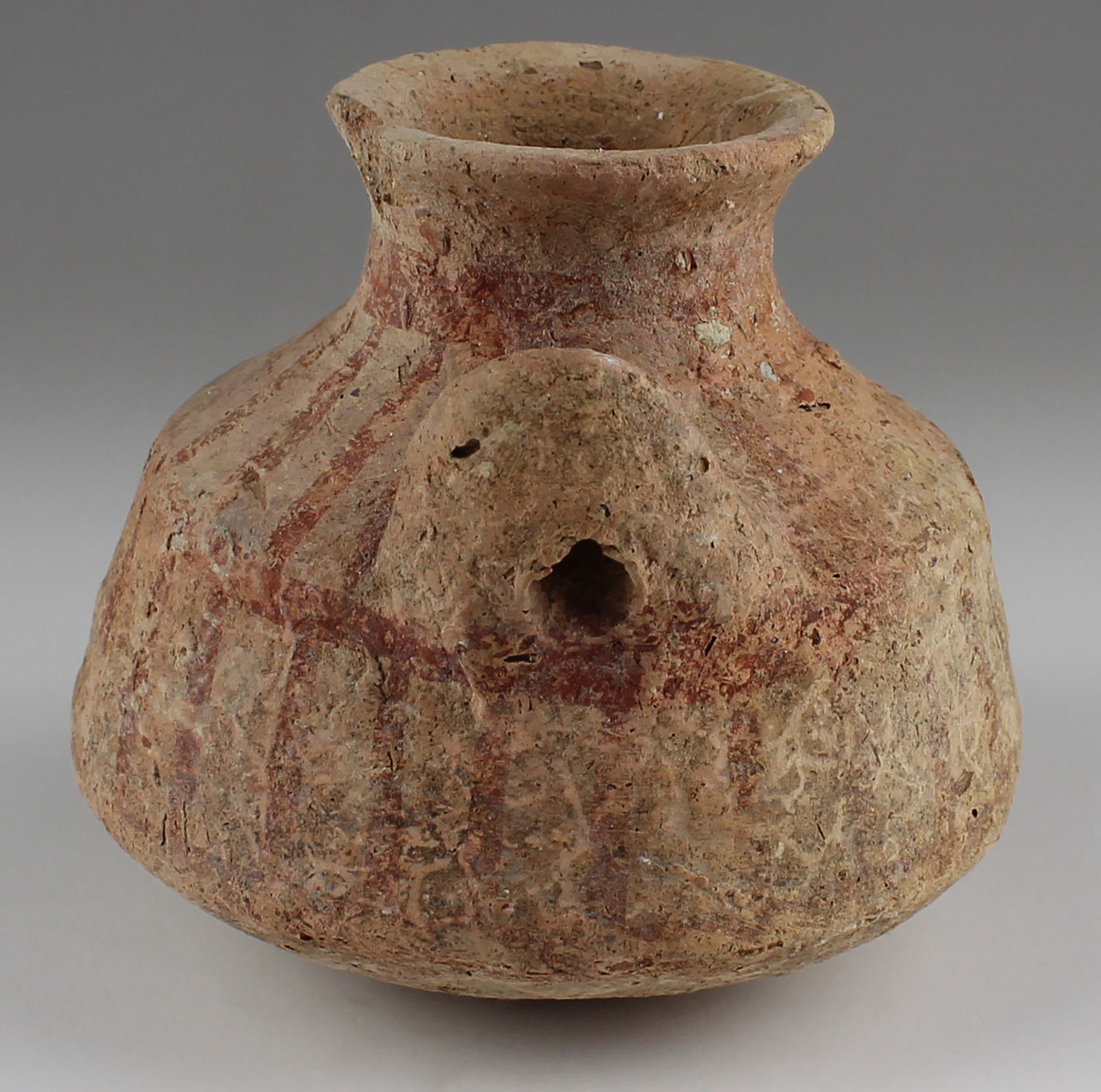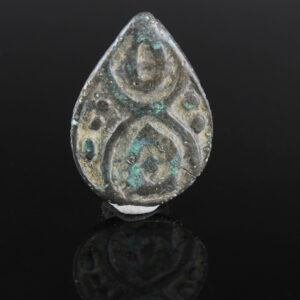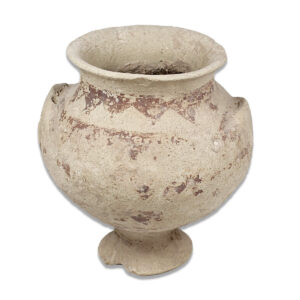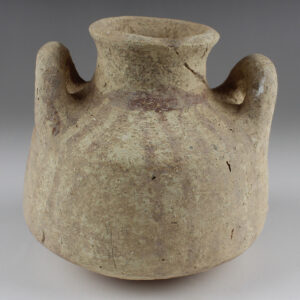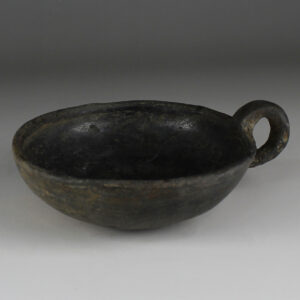Description
| ITEM | Pyxis |
| MATERIAL | Pottery |
| CULTURE | Bronze Age, Canaanite |
| PERIOD | 1400 – 1200 B.C |
| DIMENSIONS | 80 mm x 90 mm |
| CONDITION | Good condition |
| PROVENANCE | Ex Jerusalem private collection, acquired between 1975 – 1990. |
| PARALLEL | Grant E. 1929. Beth Shemesh (Palestine) Progress of the Haverford Archaeological Expedition. Pennsylvania, 189:476 |
Canaan was the name of a large and prosperous ancient country (at times independent, at others a tributary to Egypt) located in the Levant region of present-day Lebanon, Syria, Jordan, and Israel. It was also known as Phoenicia. The origin of the name ‘Canaan’ comes from various ancient texts and there is no scholarly consensus on precisely where the name originated nor what it meant.
According to the Bible, the land was named after a man called Canaan, the grandson of Noah (Genesis 10). Other theories cite ‘Canaan’ as derived from the Hurrian language for ‘purple’ and, as the Greeks knew the Canaanites as ‘Phoenicians’ (Greek for `purple’) and as the Phoenicians worked in purple dye and so were called by the Greeks ‘purple people’, this explanation is the most probable. The theory has also been advanced that the name comes from the Hebrew root-verb kana which denotes order from chaos, a blending, or synchronous existence.
The earliest habitation in the region was around the city of Jericho in the Paleolithic Age and this early rural community would then develop into the city which is the oldest urban center in the region (and, arguably, the world). Other cities developed during the Early Bronze Age but were abandoned, probably because of overpopulation, and the people returned to an agrarian lifestyle for a number of years. Cities again grew up during the Middle Bronze Age which saw the development of trade with other civilizations and, most notably, Egypt. Canaan (also referred to as Phoenicia at this time) continued to prosper until c. 1250 – c. 1150 BCE during the so-called Bronze Age Collapse.
Following the upheaval of c. 1250 – c. 1150 BCE, however, the Hebrews (Israelites), to whom Joshua is said to have given the land, populated the region and established the kingdoms of Israel and Judah. These kingdoms lasted until the region was conquered in succession by the Assyrians, Babylonians, Persians, Alexander the Great, the Seleucids, and the Roman Empire.


